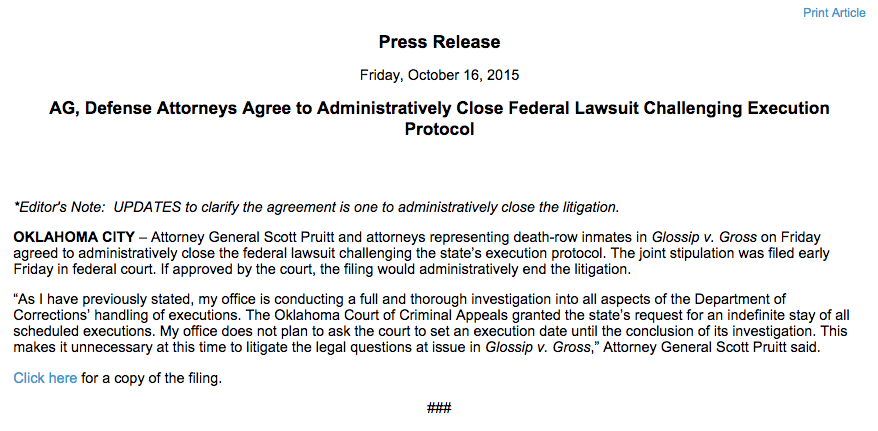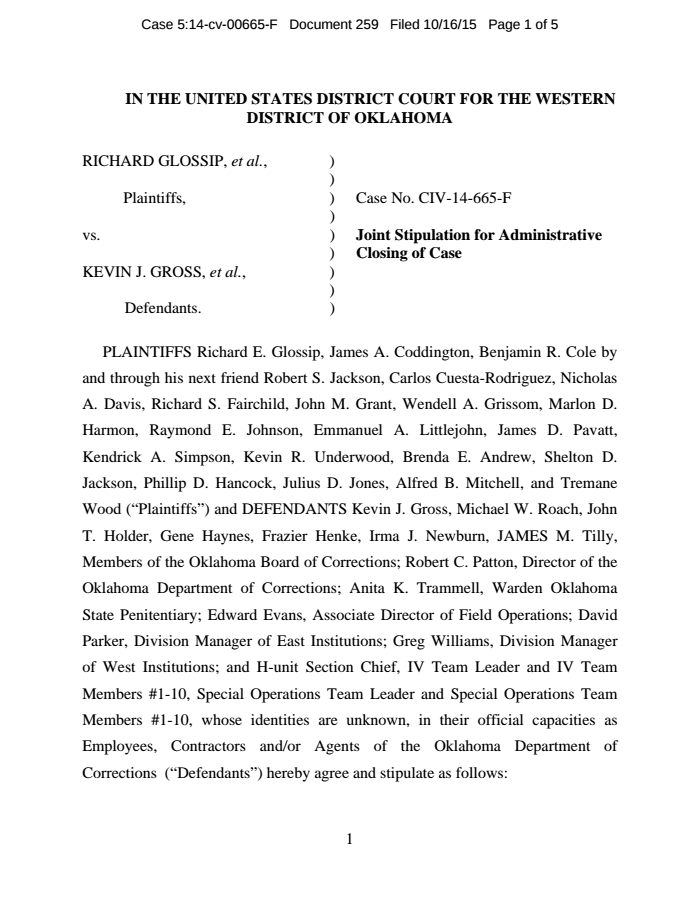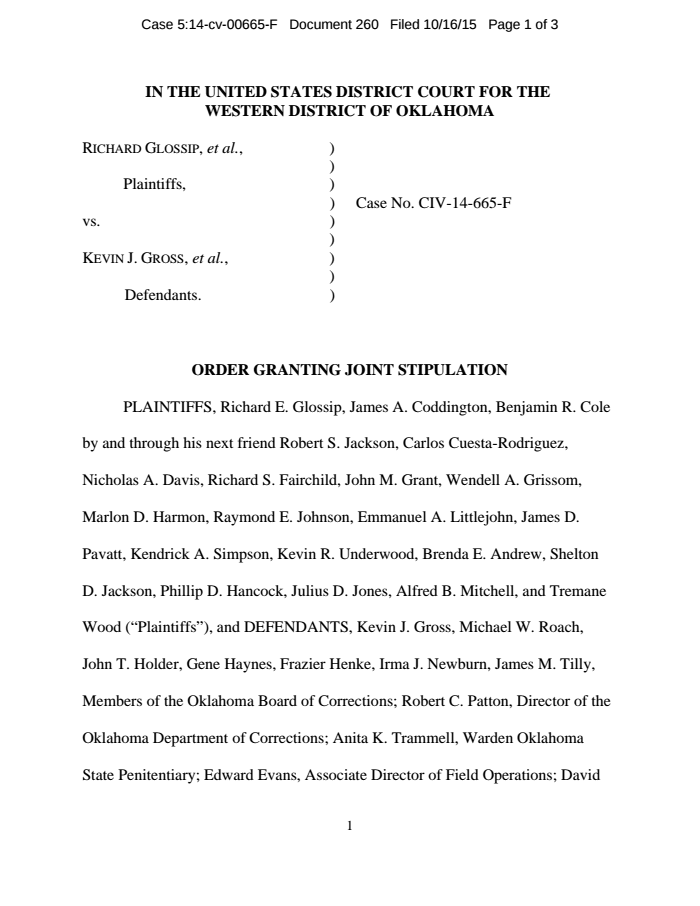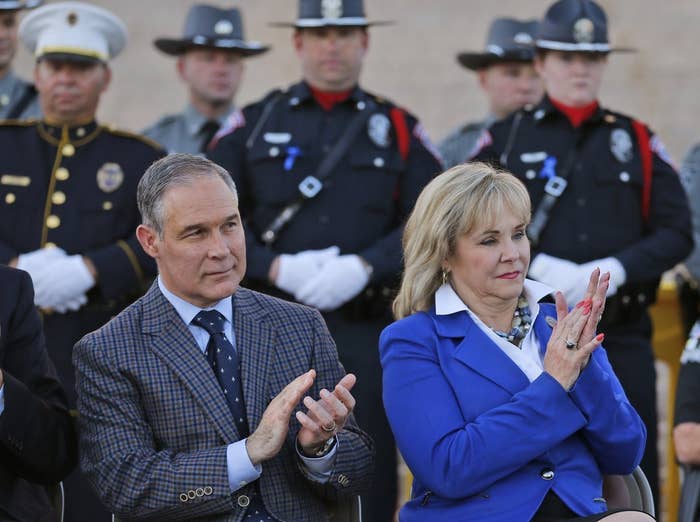
WASHINGTON — There will be no more executions in Oklahoma this year under an agreement the state has reached with inmates, the latest fallout from the halted execution of Richard Glossip this past month.
In a filing in ongoing federal litigation over the state's execution process, the state and inmates challenging the process agreed — and the federal court agreed — that the case "should be administratively closed for an indefinite period of time" because the Oklahoma Attorney General agreed not to seek an execution until 150 days after the inmates' lawyers are provided with the results of an investigation into to the state's execution procedures.
Glossip's scheduled execution was halted by Oklahoma Gov. Mary Fallin on Sept. 30 when it was discovered that the state had been provided with a drug for use in Glossip's execution that was not a part of the approved execution procedures. Oklahoma Attorney General Scott Pruitt announced an investigation, and shortly thereafter all upcoming executions were put on hold indefinitely later that week.
A week after that, further questions were raised when it was revealed that the state actually had used the incorrect drug — potassium acetate in place of the authorized potassium chloride — in the January execution of Charles Warner.
Under the Friday filing in the federal case, the inmates agreed to "administratively clos[ing]" the lawsuit because Pruitt's office agreed not to set an execution until 150 days after any investigations are conducted and results of those investigations are provided to the inmates' lawyers, after any changes to the state's execution protocol are made and provided to inmates' lawyers, and after the lawyer are given "notice that the Oklahoma Department of Corrections will be able to comply with the express terms of the Protocol."
Once the state does all of that, the inmates will have 14 days to reopen the litigation. The federal judge hearing the case signed off on the agreement, administratively closing the case in an order on Friday.
The agreement led Pruitt's office initially to claim in a statement, "Attorney General Scott Pruitt announced Friday attorneys representing death-row inmates in Glossip v. Gross have agreed to dismiss their federal lawsuit challenging the state's execution protocol." Pruitt's office tweeted out a similar comment, with a link to the news release.
After being questioned about the tweet, the office deleted the tweet. The news release remained unchanged initially, but it, too, eventually was changed, with a note that the new version "UPDATES to clarify the agreement is one to administratively close the litigation." The new version states, instead, "Attorney General Scott Pruitt and attorneys representing death-row inmates in Glossip v. Gross on Friday agreed to administratively close the federal lawsuit challenging the state's execution protocol." A new "clarification" tweet was posted as well.
Pruitt's office did not immediately respond to a message seeking comment about the cause of the apparent mix-up.
Oklahoma Attorney General Scott Pruitt's now-deleted tweet:

The "clarification" tweet:
Clarification: Attys for Glossip v. Gross agree to administratively close lawsuit challenging execution protocol http://t.co/2nHtie1jH4
The initial AG's office news release:
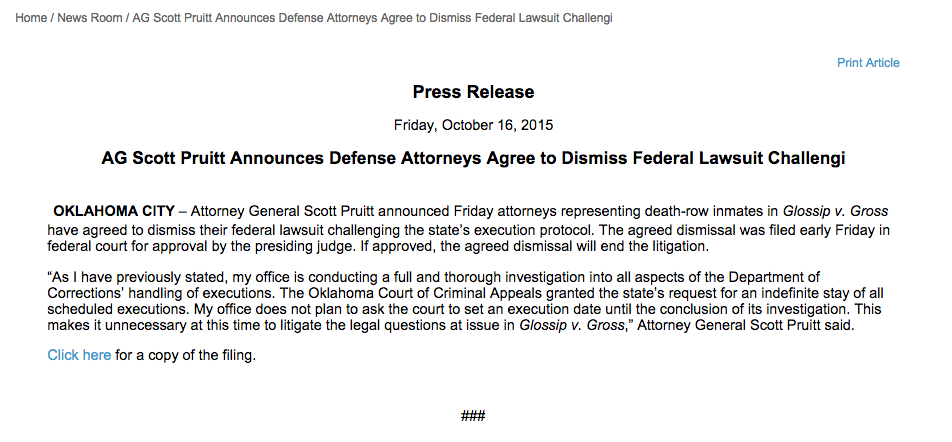
The revised AG's office news release:
